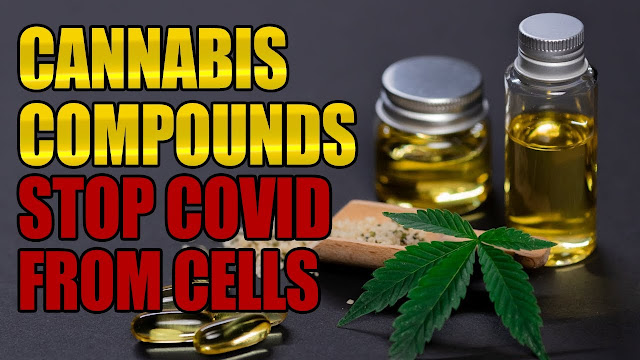Certain cannabis compounds prevent COVID-19 infection, new study shows
Certain cannabis compounds prevent COVID-19 infection, new study shows
Some cannabis compounds have been found to prevent the COVID-19 virus from penetrating healthy human cells.
The recent laboratory study was published in the Journal of Nature products with research conducted at Oregon State University, led by Richard van Breeman alongside Oregon State’s Global Hemp Innovation Centre.
The study suggests that two commonly found compounds in hemp - cannabigerolic acid (CBGA) and cannabidiolic acid (CBDA) - prevent coronavirus from entering cells by blocking a step the pathogen uses to to infect people.
In the study, these compounds were able to bind to the spike protein in SARS-CoV-2, which is the same effort used in vaccines and antibody therapy.
“That means cell entry inhibitors, like the acids from hemp, could be used to prevent SARS-CoV-2 infection and also to shorten infections by preventing virus particles from infecting human cells. They bind to the spike proteins so those proteins can’t bind to the ACE2 enzyme, which is abundant on the outer membrane of endothelial cells in the lungs and other organs,” said Breemen in a statement.
The compounds were tested against the alpha and beta variant in a lab setting. The supplements were not given to any people or tested against a control group.
Hemp is one of the cannabis species grown for industrial and medicinal use, featured as part of dietary supplements, animal feed, CBD oil and cosmetics.
“These compounds can be taken orally and have a long history of safe use in humans,” said Breeman. “They have the potential to prevent as well as treat infection by SARS-CoV-2."
The researchers did not study the psychoactive ingredient in marijuana, THC, during the lab tests. Breeman wanted to create a distinction that recreational marijuana may not have the same effect on preventing COVID-19 as ingesting an oral supplement does.
"If these hemp products containing these compounds are smoked or vaped, the heat exposure could cause the chemical decomposition or conversion of CBD-A to CBD, CBG-A to CBG, and THC-A to THC. So, we know that CBD, CBG and THC are not active against the virus."
In December, Malta became the first EU member state to legalise the possession of cannabis, or its cultivation, for personal use.
Adults are allowed to carry up to seven grams of the drug, and to grow up to four plants at home. They are not allowed smoke it in public, or in front of children.
Germany, Luxembourg and Switzerland are considering moves to accommodate possession of the drug for personal use, and Italy is to hold a referendum on the issue. Ireland, meanwhile, maintains harsh laws compared to other European countries and US states.
Last year, the College of Psychiatrists of Ireland was widely criticised and mocked for claims published in the Irish Times that cannabis is the “gravest threat” to young people’s mental health in this country.
The absolute ban on THC under the 1977 Misuse of Drugs Act arguably fails to take account of up-to-date research carried out on the likes of CBD products and impacts on EU trading rights.
The current cannabis laws in Ireland make it an offence to cultivate, import, export, produce, supply and possess cannabis except in accordance with a ministerial licence. No licenses have been permitted for medical use, and the government has no current plans to legalise cannabis.






Comments
Post a Comment